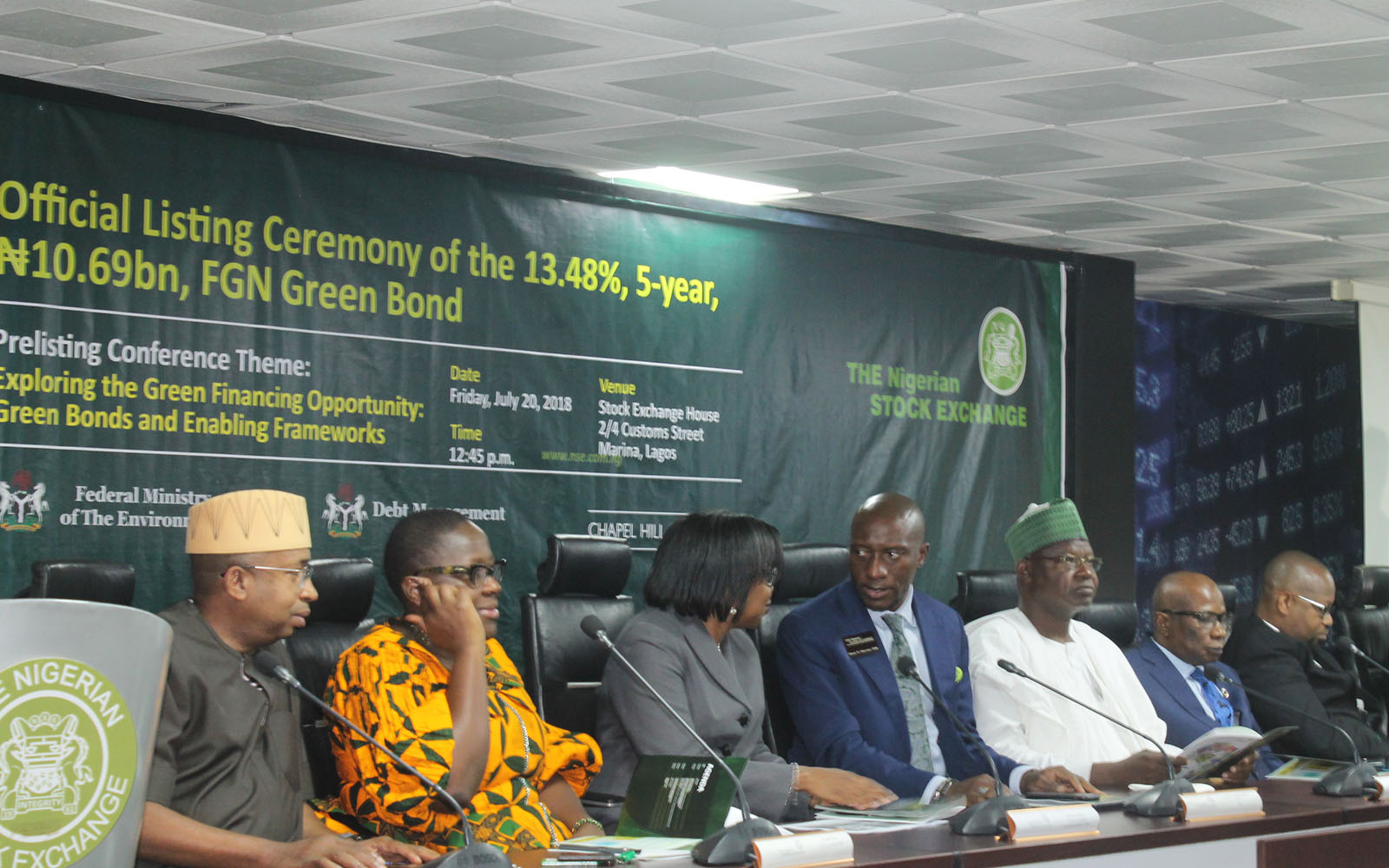Perhaps buoyed by the success of the first Green Bond, the Federal Government of Nigeria is already making preparations for a second Green Bond raise.
President Muhamadu Buhari who was represented by the Minister of State for Environment, Usman Jibril, disclosed this in his goodwill address.
“There is plenty to celebrate even as we work towards another issuance on the back of the recently signed 2018 budget.”
Jibril stated that Ministries, Departments, and Agencies (MDAs) had been asked to submit projects that are environmentally compliant.
The Federal Government in December 2017, through the Federal Ministry of Environment, Debt Management Office (DMO), and Ministry of Environment held a Green Bond conference at the Nigerian Stock Exchange (NSE). It was a N10.69 billion Green Bond at a coupon rate of 13.48%, as part of funds to raise the 2017 budget as well as the Economic Recovery and Growth Plan (ERGP). Projects funded by the bond were expected to create 10% of the expected 15 million jobs to be created by 2020.
Nigeria became the first country in Sub-Saharan Africa to issue a Green Bond.
Going Forward
Oniha also confirmed that the DMO would improve on the issuance process, based on its experience from its last raise.
Readmittance into JP Morgan Bond Index
In response to a question by Nairametrics on when the country would be readmitted on the JP Morgan bond index, Oniha stated that it would depend on the two-way discussions between the DMO and the investment firm. She, however, noted that foreign exchange, which had been a key issue was much more stable.
A Green Bond is similar to regular bonds, with the exception that proceeds are to be used for environmentally friendly projects.
The benefits of a Green Bond to the issuer, in addition to accessing more funds, include an enhanced global reputation and commitment to sustainable development.
In addition, for mono-economies like Nigeria, green bonds offer a means of channeling funds into other sectors that can drive the nation’s economy.
The government embarked on a massive debt raise last year in order to finance the infrastructural deficit. Crude oil revenue, which forms a huge part of government revenue dipped last year due to a drop in crude oil prices and production volumes.












thanks for keeping us updated with business in the country. Im a regular reader…scientist thats just picking up finance and business education. Please can you include advice at the end of your stories for masses like me? Like a small ACTION POINT at the end. eg where can i walk into to be part of the green bond? can I?